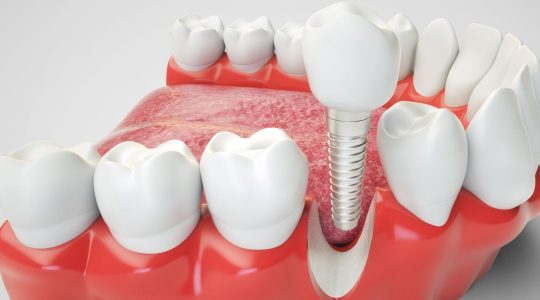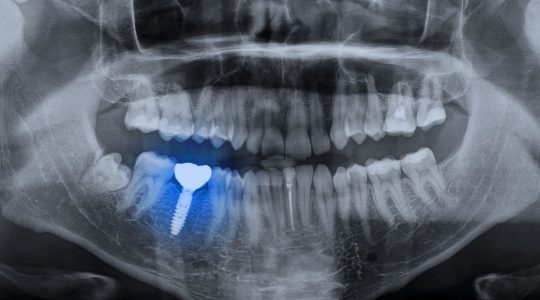Dental implants cause allergies or rejection.
It is a completely false statement, since dental implants are made of titanium and one of the characteristics of titanium is that it is highly biocompatible with all tissues of the human body. What sometimes happens is that osseointegration of the implant with the bone tissue of the jaws does not occur (it only occurs in 2% of the treatments). This can occur due to infections after implant placement or due to the patient's own risk factors (such as smoking, poor hygiene, etc.). When osseointegration of the implants does not occur, what is done is to remove the dental implant, clean the area well and wait a few months for it to heal well before placing another dental implant.

Dental implants are for life.
Although it is true that treatments with dental implants can last many years, we cannot categorically say that they last a lifetime, since the duration of dental implants is closely related to the care that the patient subjects to their mouth. Thus, it is normal for a dental implant to remain in the mouth for more than 30 years in perfect condition, as long as the care and maintenance of the mouth is adequate.

Placing dental implants is very painful.
It's false. The placement of dental implants is carried out under local anesthesia, which makes the intervention painless. It is much more unpleasant to extract a tooth or molar than to place dental implants. Additionally, after the intervention, we provide postoperative instructions explaining the steps to follow so that you have the least discomfort during the healing process.
If I smoke I can't get dental implants.
It's false. Many smokers have dental implants and have had them for years. What is important is that they try to quit smoking to improve the health of their gums. Smoking increases the risk of complications in dental implants, but it is by no means totally contraindicated to place dental implants in smokers.

If I don't have enough bone I can't get dental implants.
Nowadays it is possible to place dental implants even if we have very little bone, since there are regeneration techniques, such as sinus lifts or bone grafts, that allow us to regenerate the areas where we want to place the dental implants. In addition, we also have dental implants (dental microimplants) of smaller diameter and shorter length, which allow us to place them in areas where there is very little bone.

Only older people can have dental implants placed.
It is a totally false statement. From the age of 18, when the growth of the jaw bones has finished, anyone can undergo surgery with dental implants.
Dental implant treatments are highly predictable treatments, with which we achieve excellent results as long as they are performed by perfectly trained dentists with the experience and skill necessary to perform this type of treatment.



